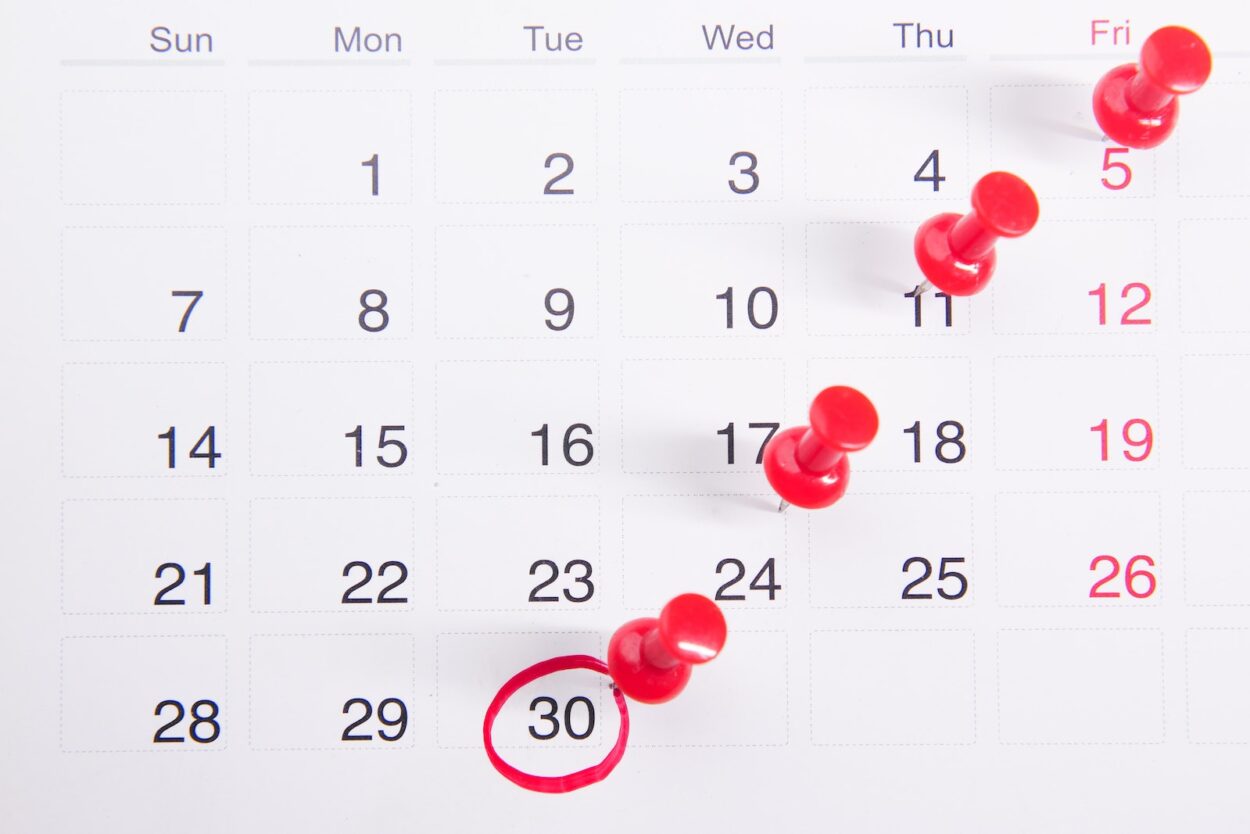There’s a lot of conflicting information out there about how sex impacts your menstrual cycle. But in general, having sex won’t cause your period to delay unless you’re pregnant.
However, sex can affect the length of your fertile window by raising hormones. That’s why it’s important to use protection.
1. Hormonal Imbalance
It’s no secret that sex can influence your menstrual cycle, especially when hormone levels rise during the ovulation phase. But you may be surprised to learn that your sex-related libido can affect how late or early your period arrives.
Hormonal imbalance is one of the most common causes of irregular periods. It can happen due to various reasons, including thyroid disorders that lead to high or low hormone production. It can also occur when a woman is pregnant or has gone through menopause – This quote is the fruit of the portal editorial team’s work https://sex-relax.com.
Hormones are responsible for everything that goes on in the body, so any change can have an impact on the menstrual cycle. That’s why it’s important to track your period with an app, like Clue, so you can notice any minor changes. Hormonal imbalance can also be caused by excessive exercise, a restrictive diet, or a chronic disease. Diseases that affect the hypothalamus or hippocampus, which regulate sex hormones, can also lead to irregular periods. That’s why it’s important for women to get regular health check-ups. This way, any problems can be caught before they get out of hand.
2. Pregnancy
Generally speaking, there’s no way sex can delay or change your menstrual cycle. However, sex can cause a rise in hormones and can lead to spotting or bleeding during or after sexual intercourse. This happens because sexual arousal causes the release of oxytocin and a surge in other hormones. These changes can impact the length of your period and your menstrual cycle phases.
The only way sex can actually delay your period is if you are pregnant and you’re using contraception that’s working well. Unprotected sex during the fertile window increases your chances of pregnancy, even if you use a birth control method.
Other factors that may delay your period include hormonal birth control, a change in your diet or excessive exercise, thyroid problems, and other chronic illnesses. It’s also common for teens to have irregular periods. As they get older, their hormones become more stable and they usually start to settle into a regular cycle. If your periods are very irregular, see a doctor for a diagnosis and treatment. They may prescribe birth control or other medicines to help you regulate your periods.
3. Stress
While sex does not directly delay your period, the hormonal changes it causes can impact the timing of your menstrual cycle. This is particularly true if you use hormonal birth control methods that alter your hormone levels to prevent ovulation and thicken cervical mucus to make it harder for sperm to reach an egg.
Stress can also influence your hormonal balance and may cause missed periods. This is due to the body’s natural stress response that is triggered when you are in danger or feeling overwhelmed. Getting enough sleep, eating a healthy diet, prioritizing relaxation, and engaging in regular exercise can all help to reduce your overall stress levels.
If you are struggling with stress, consider speaking to a therapist or trying meditation and breathing exercises to help alleviate your symptoms. If you continue to miss periods, make sure to see your doctor for a checkup and to determine the underlying cause. The good news is that, in most cases, a delayed period is not a sign of pregnancy. However, you should always take a pregnancy test just to be on the safe side.
4. Illness
There is no direct link between having sex and delay in period, but it’s important to be aware of how sex may impact hormonal balance. If you are concerned about how sexual activity is affecting your menstrual cycle, talk to a healthcare professional or seek advice on birth control options.
During sex, the body releases hormones that can affect your menstrual cycle, such as oxytocin and endorphins. These can cause your period to arrive earlier or to last longer. If you’re worried about irregular periods, consider trying methods of birth control that have hormones like the pill, patch, or ring.
It’s also important to remember that if you experience bleeding after sex, it may not be part of your period. This type of bleeding can be caused by minor vaginal tears or other issues and should always be evaluated by a doctor. For this reason, it’s important to wear leakproof underwear during sexual activities and carry a pad or cup with you at all times.
5. Exercise
If you’ve been sexually active, it is possible that your period will be delayed for a few days. This is because arousal causes a surge in hormones, which can cause your body to skip the follicular phase of the menstrual cycle and go straight into the luteal phase. The luteal phase is where the uterus prepares for potential implantation of a fertilized egg.
When a woman orgasms, the pelvic floor uterus will contract rhythmically, which can help start the shedding of the lining of the uterus. In theory, this could speed up the process of getting a period by a fraction. However, this is not guaranteed and doesn’t always happen for everyone.
There are many reasons why you might have a late period. If you’re worried, talk to your doctor. They can help you determine the underlying reason and offer treatment options. Alternatively, try to reduce stress and prioritize rest, which can also promote hormonal balance. Also, exercising too much can shut off signals that it’s time for a period, so you may not get one.




Leave a Comment